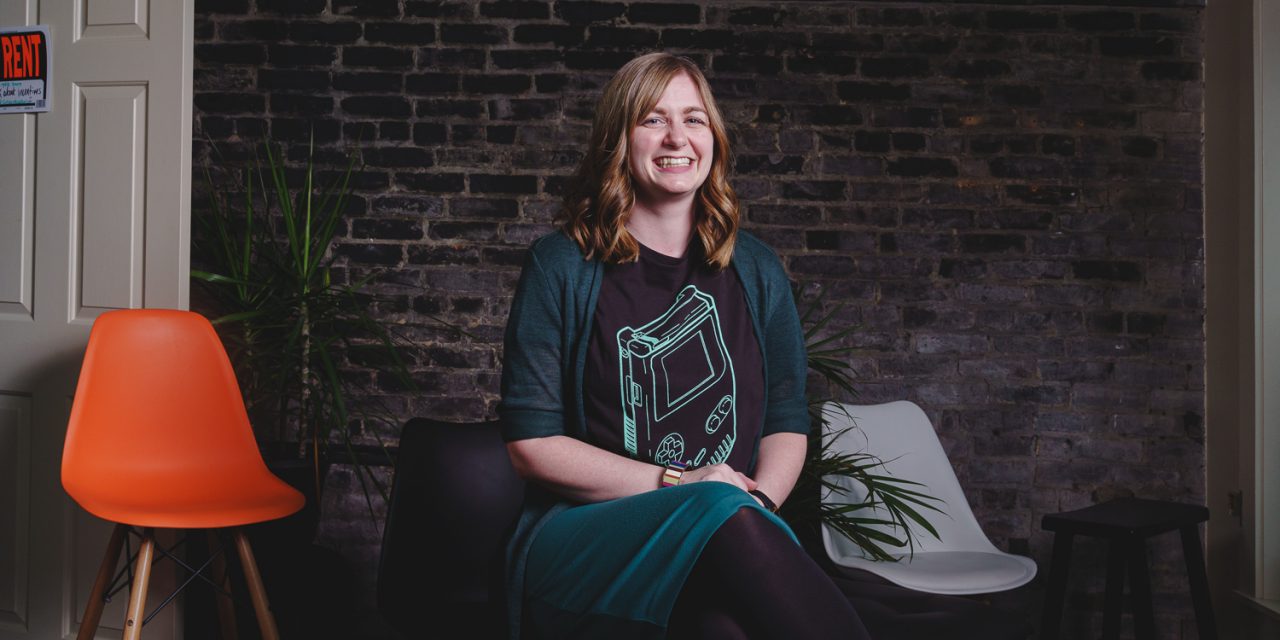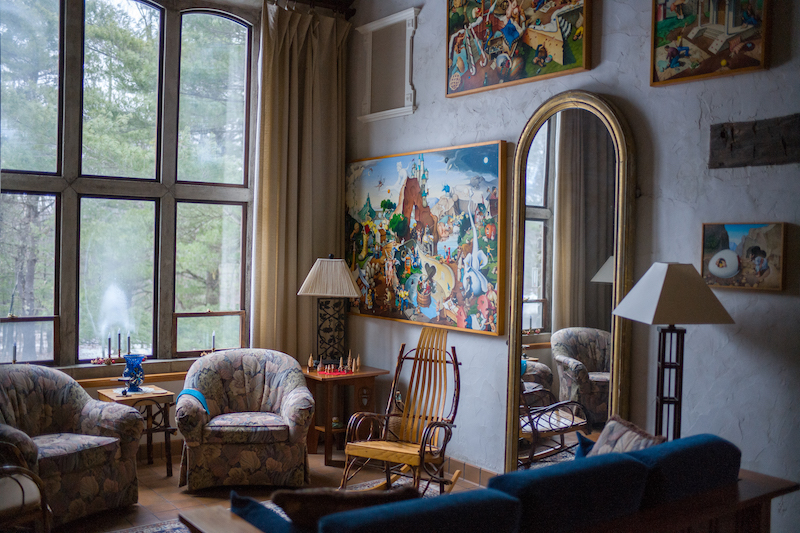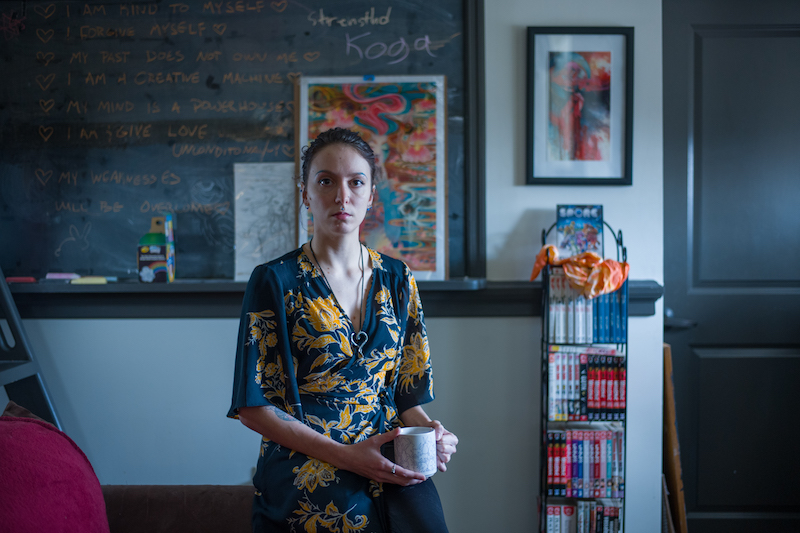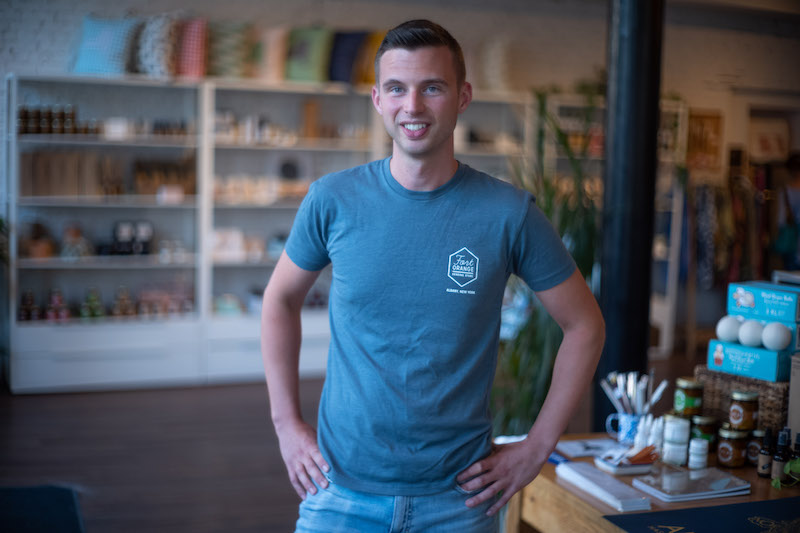Photo Credit: Jamel Mosely
Creative Under 40 Story by David King and Katie Cusack
Casey Polomaine helps others ‘figure out how to do what they love’
Casey Polomaine spent six years working at a credit union until she finally had enough. She took a leap of faith and started her own theater troupe to pursue what she fell in love with in high school. There weren’t any theater jobs in the area when she graduated college and she’d fallen into a rut, but she wasn’t going to waste more time. She and her friend Aaron Holbritter set about forming Creative License to put on works that they felt are underrepresented.
“Creative License needed space so I met Kristen Holler (executive director) at Albany Barn and she helped us, supported us when we had no money,” Polomaine says. “She understood what we wanted to bring to life.”
Polyamine told Holler she so appreciated the mission of the Barn—a sustainable creative arts incubator and community arts center—that if there ever was an open position, she’d love to be considered. Two months after she quit the credit union, Holler let her know there was an open position.
“This really gave me the perspective of being in the shoes of the people we help at the Albany Barn,” Polomaine says. “The Barn was there for me and now I go to work there every day and I’m surrounded by creativity.”
As director of programming and residencies at Albany Barn, Polomaine guides artists through the residency application process; and helps them arrange events, screenings, galleries and public productions. She also helps artists examine how their art can be most impactful and how to monetize it.
“I know what it’s like to want to do good work but need to make money,” she says. “You need to survive. It can be soul-crushing. So, I’m extremely excited to help others figure out how to do what they love.”
In addition to working with creatives at the Barn, Polomaine sees a renaissance in local theater and the creative arts in general. “There are more and more companies popping up trying to do their own thing,” she says.
“Everybody has an idea and they are no longer too scared to do it because they don’t have a lot of money.”
Polomaine attributes that willingness to take risks to the proliferation of places like the Barn and coworking spaces. “These spaces allow people to feel safe and secure in taking these risks and knowing there are people there doing the same who care about you,” she says. “These are people who are emptying their bank accounts to take a risk.”





